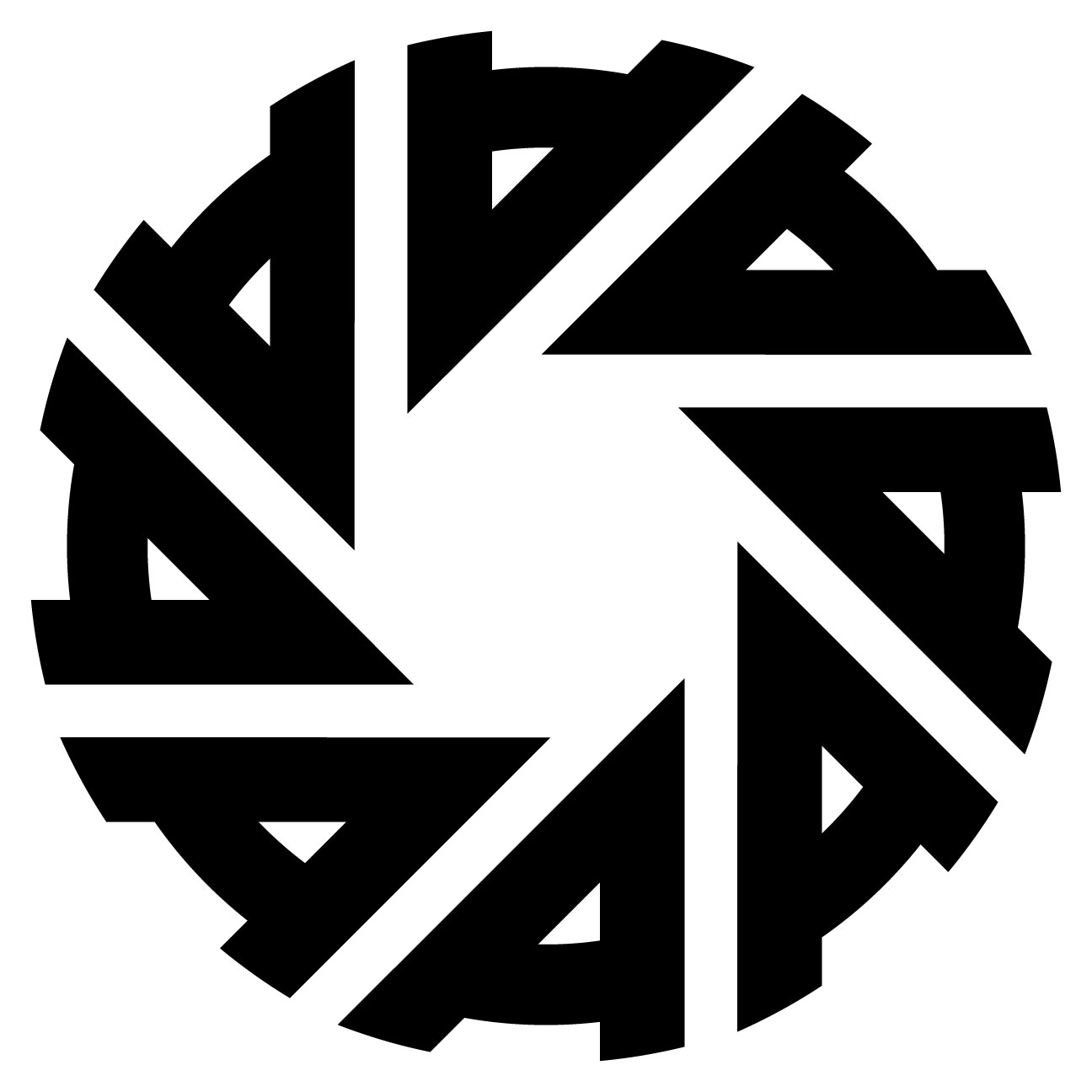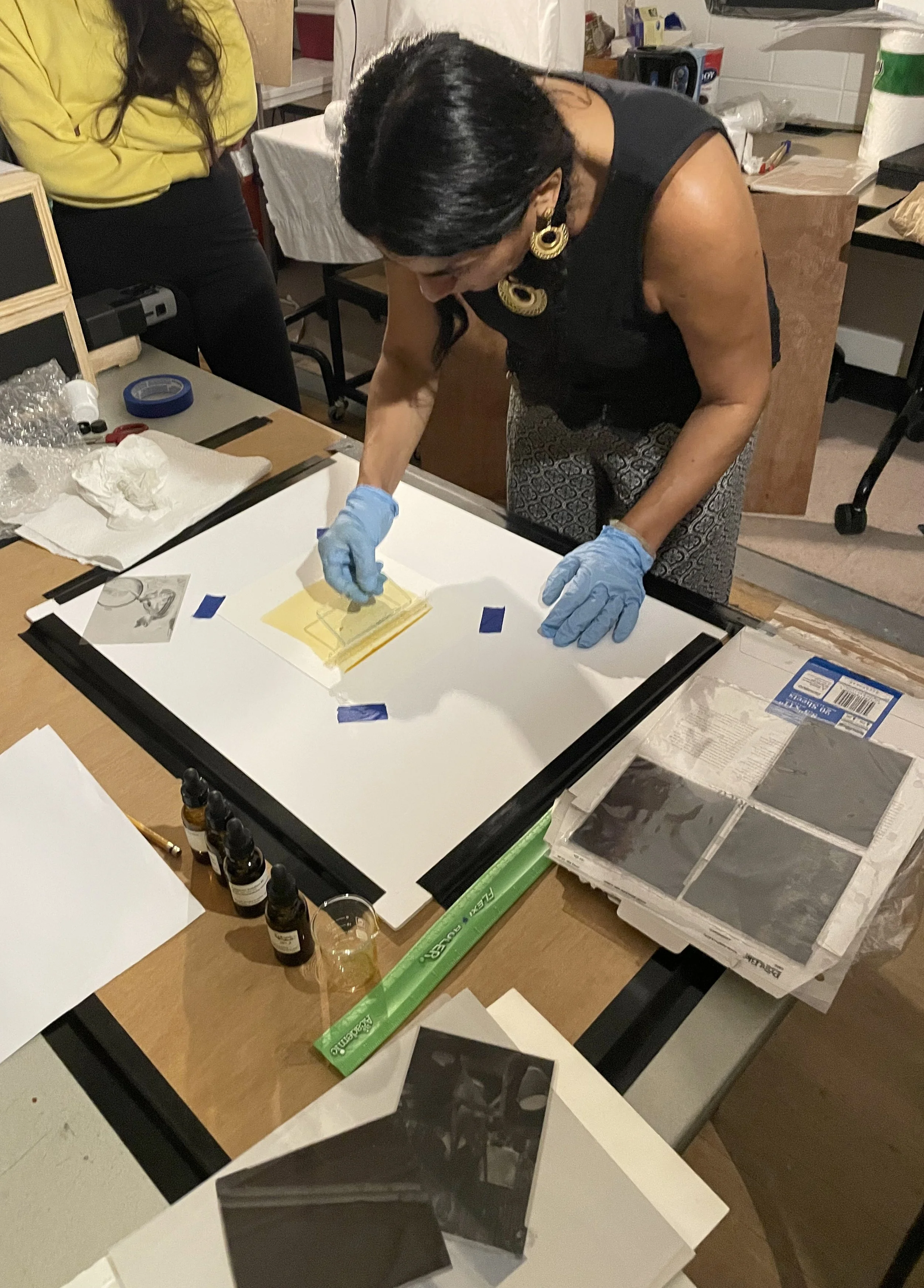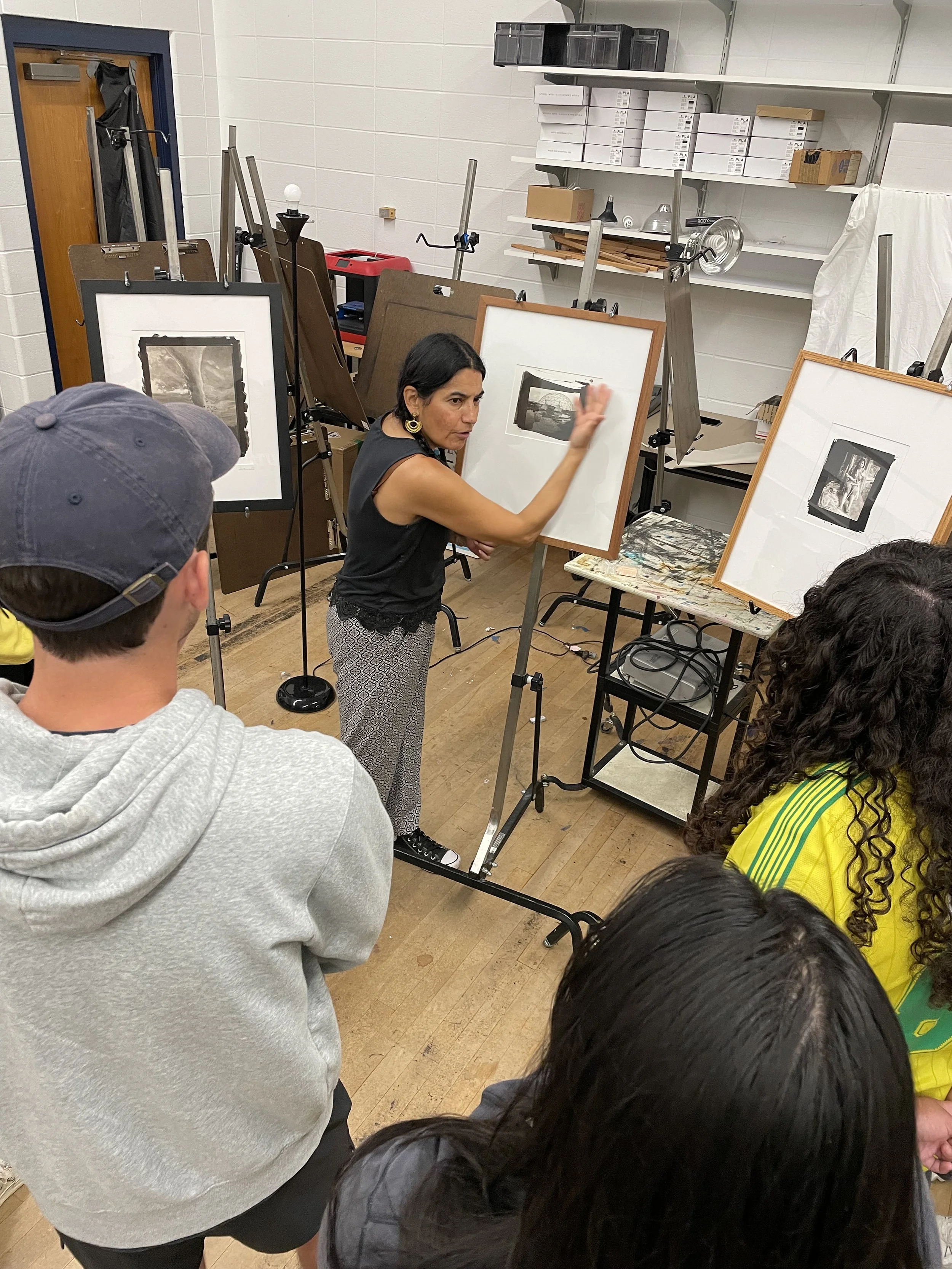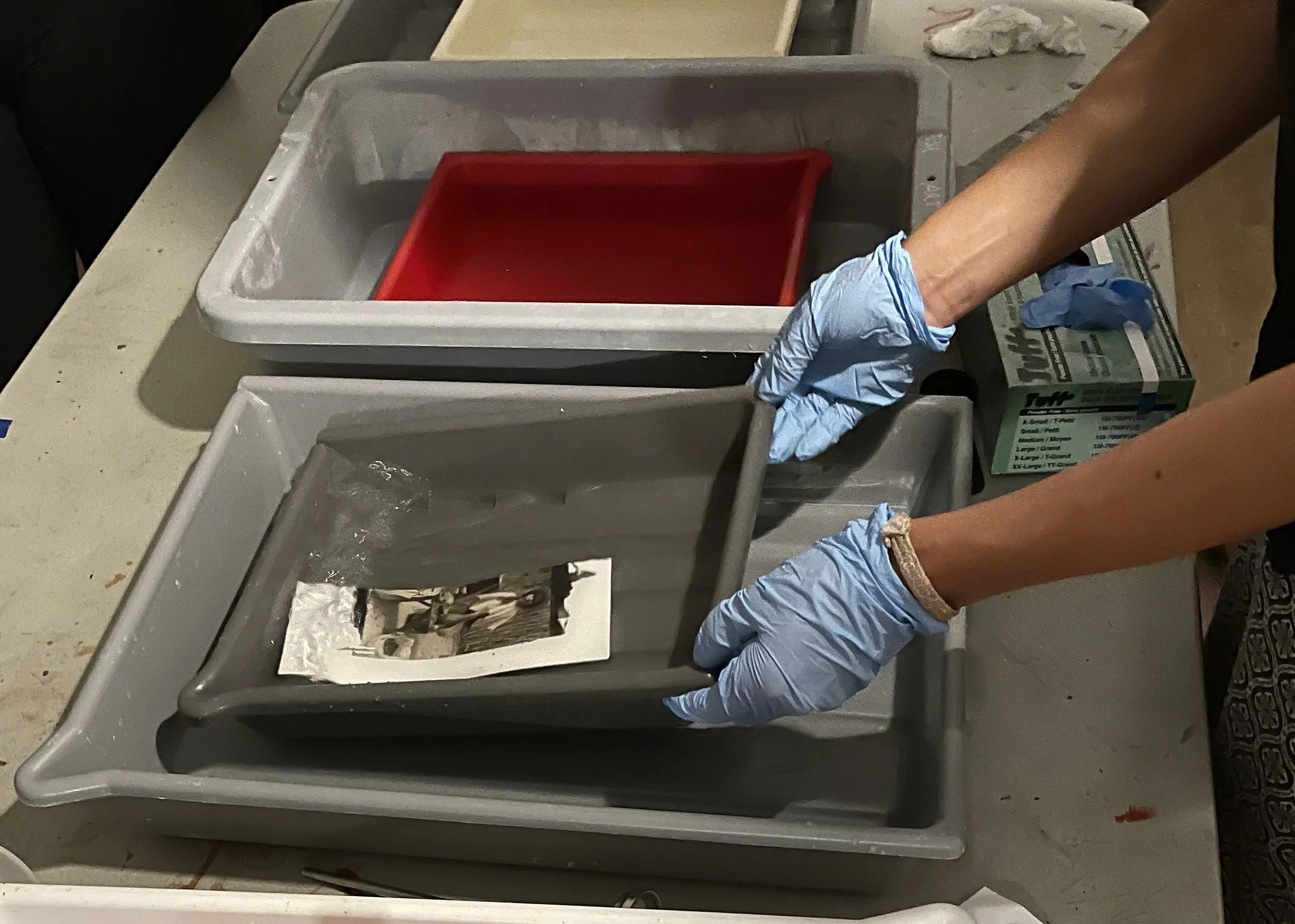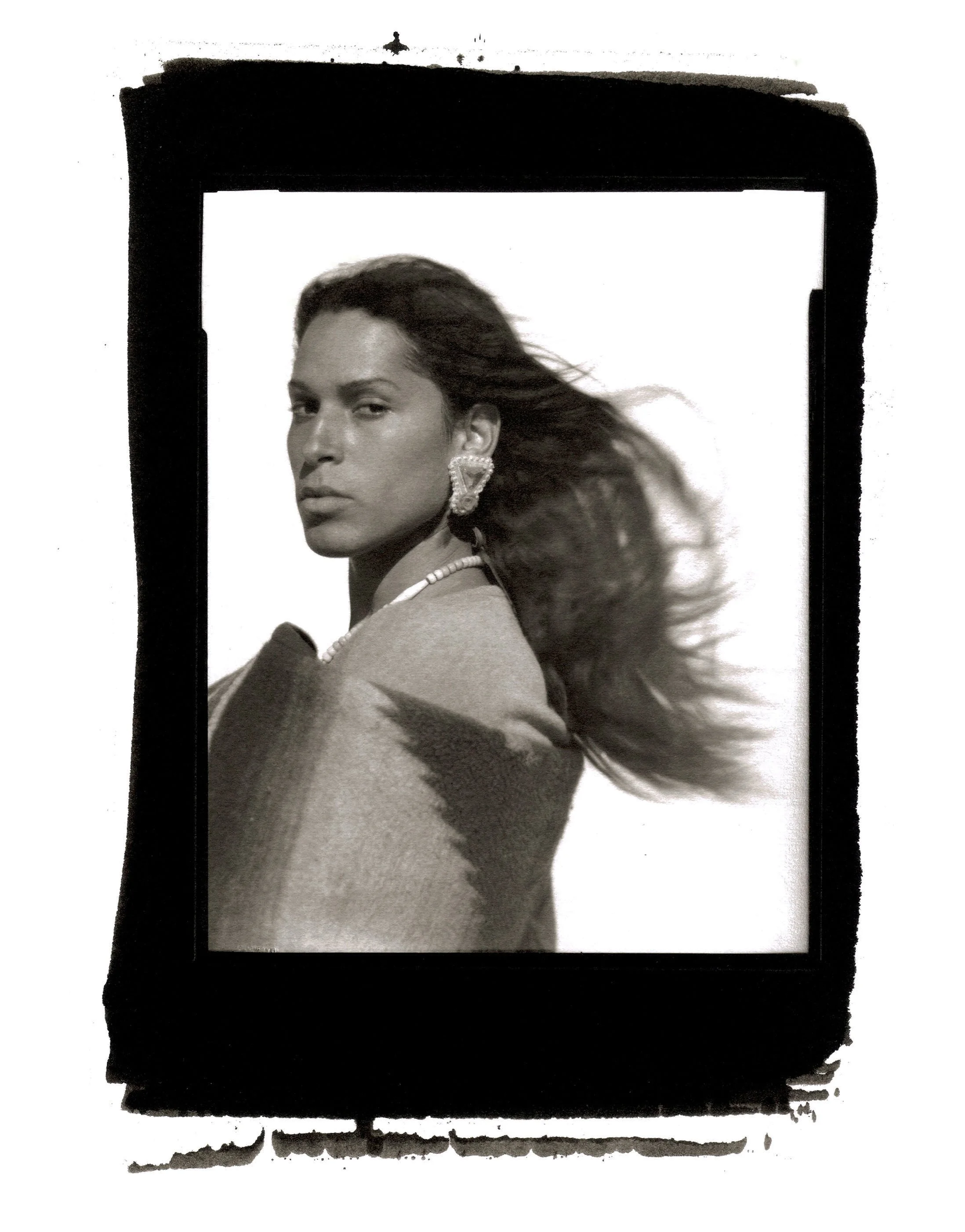Platinum-Palladium Printing with Alexandra McNichols-Torroledo, February 21-22, 2026
Platinum-Palladium Printing with Alexandra McNichols-Torroledo, February 21-22, 2026
February 21-22, 2026, 10am-5pm
Limited to 10 participants
Registration closes February 18 or when filled
Non-Members: $270
Aurora Members: $250
(Enter Member VIP code at checkout for discount)
The platinum-palladium printing process has been known for its beautiful, rich tonal range since it first came to prominence in the mid 1800s. Today, this exquisite 150-year-old-process is available to enrich the prints of analog and digital photographers alike. During this two-day, in-depth creative experience, participants will get hands-on to make unique, amazing photographic prints using the platinum-palladium process. Our small workshop size allows for time to ask lots of questions, start great conversations about the process, and learn and create within the workshop framework.
Day One: Workshop leader Alexandra McNichols-Torroledo, who has been printing with platinum-palladium for over 20 years, will begin with a short presentation about the process and her work in platinum-palladium. Then she will demo the basic process of making a platinum-palladium print from start to finish using her own 4 x 5 negatives and digital negatives. In the second part of the day, McNichols-Torroledo will teach participants how to generate digital negatives from digital sources, explaining the necessary adjustments in Photoshop and how to output to transparency film. At the end of the day, participants will print digital negatives for use on Day Two; participants can also bring 4 x 5 negatives to print on Day Two.
Day Two: McNichols-Torroledo will work hand-in-hand with participants to produce prints from their own negatives and digital files. You can expect to create at least 2 4 x 5 platinum-palladium prints during this workday. To finish off the day, participants will gather to present their favorite prints from the day and have the opportunity to receive feedback from McNichols-Torroledo and the workshop.
The workshop will cover:
* Selecting images that pair well with the platinum-palladium processs
* Creating digital negatives
* Mixing the platinum-palladium chemistry
* Coating the paper
* Making the correct exposure, with sunlight and a UV exposure unit
* Processing the prints
* Proper care, storage, and handling of platinum-palladium prints
All equipment and materials will be on hand and are included in the workshop fee. Transportation, food, and lodging are not included in the price of the workshop.
Participants need to bring either 4 x 5 negatives or high-resolution digital files to the workshop that they wish to print. If you’d like to create some 4 x 5 negatives for the platinum-palladium workshop, please register for Large Format Film Photography with Alexandra McNichols-Torroledo on October 25.
This workshop is suitable for all beginners. Basic darkroom experience is helpful but is not required. Minors must be accompanied by an adult.
Alexandra McNichols-Torroledo is a Colombian born photographer who lives in America as a citizen. Her work bridges artistic and documentary photography by combining alternative photographic processes and digital photography, focusing on themes including exodus, immigration, climate change, and sustainability. McNichols-Torroledo’s work has been shown in solo and group shows in Colombia and America at Guichelaar Gallery/Big Car, FAR Center for Contemporary Arts, Swope Art Museum, El Museo Cultural Santa Fe, Pereira Museo de Arte, Museo La Tertulia Cali, John Waldron Arts Center, Gayle Karch Gallery, Galería La Cometa, Halcyon Gallery, Shircliff Art Gallery, Fotojueves, Centro Cultural del Oriente, Arts Illiana, Galería Sextante, McKendree Gallery of Art & Hettenhausen Center for Arts, Sala ASAB, and Arts Council of Southwestern Indiana, among others. McNichols-Torroledo holds an MFA in Photography and MA in Literature from Indiana State University, and a BA in Communications and Journalism from Universidad Externado de Colombia.
This workshop was made possible by a generous grant from the Phillip and Edith Leonian Foundation.
